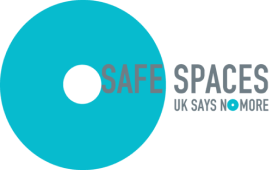Take action
If you are experiencing feelings or behaviour likely to endanger yourself or others, it is important to get help without delay. See our In a Crisis page.
What you can do to help your recovery
- Pay extra attention to your self care – eat well, get enough sleep, stay hydrated and exercise. See also Self Care
- Make boundaries – don’t take on more than you can manage. Don’t be heroic
- Don’t deny that you have a problem – we are all vulnerable human beings and can suffer from fear and anxiety just as much as the next person
- Try to alter your pattern of work, and activities outside of work, to be kinder to yourself and to give an opportunity to be around people you trust and who can provide you with support.
- Challenge yourself but don’t over challenge (see Flow: A Psychology of Happiness)
- Put time into creating good relationships at work
- Learn the skills of stress management. See Stress
- Negotiate time out – no one should expect you to be a workaholic
- Develop interests outside work
- Make sure you are registered with a GP before any problems develop, or if you have not, then as soon as they do
- Start thinking in terms of wellbeing rather than than simply avoiding the negative feelings
- Learn the power of saying no
- There are any number of ways to help yourself, to get help, to change. Don’t be over-independent – getting help is just as sensible and necessary as taking your car to the garage – no one expects a car to run faultlessly for thousands of miles – so don’t expect yourself to be perfect all the time
- Try some evidence-based self-help techniques
- Talk to someone – pick up the phone to Vetlife Helpline or talk to a trusted friend
- Write something down – this helps define the problem and explore ways in which you can approach it – it also helps you express and clarify your feelings – getting them out from inside and onto the page
- Some coping strategies can be harmful. It is tempting to numb ourselves out with drugs or alcohol, to put things off, to take our frustration out on others, to become overly self-critical, or to watch television as a way of escape. However, these approaches are unlikely to help you recover a good state of mental health

If you read nothing else, read the “In Practice” article on Coping with Stress by David Bartram and Dianne Gardner – it is written specifically for vets by people with an inside knowledge of the problems and stresses of the profession. It will give you a number of different ways of thinking about stress and a number of different activities to take control of problems, your reactions and the stress they cause.
Some coping strategies can be harmful. It is tempting to numb ourselves out with drugs or alcohol, to put things off, to take our frustration out on others, to become overly self-critical, or to watch television as a way of escape.
Dr Adrian Longstaff, psychotherapist and veterinary surgeon



